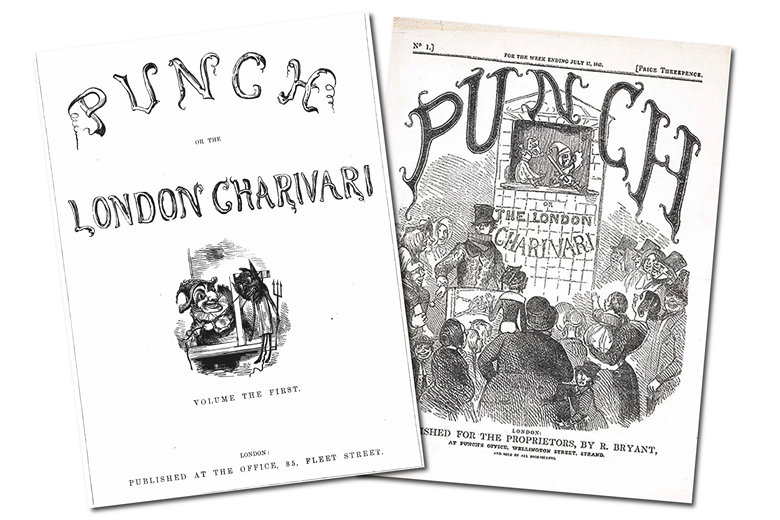Farewell Charivari: reflections on nine years of discord, debate and pianistic pet hates
Charivari
Friday, May 23, 2025
In his final column for International Piano, Charivari bids farewell and reflects on what went right, what has changed, and what more could have been done

This column has been gracing the pages of this publication for the past nine years (some would say nine years too many). Looking back over more than 60 issues, certain themes emerge, as regular readers will be only too aware. The dislike of certain composers – Boulez and Birtwistle spring to mind – has been a constant refrain. So too has a preference for a certain type of pianist and choice of repertoire. In a pleasant, forgiving and generous mood, I can appreciate the artistry of any pianist put before me who has a modicum of talent, individuality and imagination (even those who insist on playing the same repertoire over and over again, year in year out, without the curiosity to investigate the bottomless treasure chest that is the piano’s literature). But I much prefer those who are adventurous, omnivorous and stylistically diverse.
Another bugbear: the BBC Proms and its refusal – with very few exceptions – to programme anything but standard concerto repertoire. Generally, pianists and audiences are well ahead of promoters in wanting to be introduced to the great neglected piano concertos (think Moszkowski, Raff, Scharwenka, Reinecke, Henselt and dozens more). And another: online keyboard warriors who express their opinions on pianists and their performances only to betray their woeful ignorance by manifestly having very little knowledge of the back catalogue, the historical discography or the ability to put an artist in a comparative context. And save me from any more inane ‘Wow!’, ‘Jeez, she’s great!’, ‘Simply the best!’ comments.
Nothing I have written in these columns has changed anything. Bafflingly, people will still go on listening to Boulez and Birtwistle regardless of what I say. They will keep flocking to recitals of four Beethoven sonatas played one after the other (‘I know! I’ll give them give Op 111 as an encore’) and the BBC will continue in its Aunty-knows-best tradition. Charivari has flown a lot of kites on other subjects without having any known effect on the course of human history. Facial expressions – good or bad? (I think we know who I was referring to.) How technical should the language of concert programme notes be? Keyboards – does the size of piano keys disadvantage women? The authenticity of live performances versus (over-) edited studio recordings. To play with a score or not – and what difference does it make? Encore or not – ‘If not, why not’ and ‘why should I’? Should artists use concerts to hoist their political views on audiences? Are you sure you want to be a professional pianist when there are too many of you seeking too few opportunities?
Some things have changed – there has been an explosion of interest in women composers
But I do rather wish I had campaigned more forcefully on some things. For instance, calling out the small number of agents, publicists and pianists who seem pathologically unable to reply to emails and phone calls. Encouraging more promoters to follow the example of Husum in offering recitals of the forgotten and overlooked repertoire (all Husum’s recitals are over-subscribed). More: why do music colleges and conservatoires not train their students in such matters as stage craft (how to present yourself on the concert platform), and interview and language skills (if want a career you need people skills and promotion)? And why do so many courses not include mandatory sessions for examining the recordings of the great pianists from the past? Two others: positive discrimination in favour of one gender or another at a piano competition should be made illegal. And get Amazon, Spotify, YouTube et al to pay artists and composers a fair rate for their work. Pigs might fly.
Some things have changed. I asked a few years ago why more women pianists did not promote more women composers. Nothing to do with me, but in the last decade there has been an explosion of interest in Cécile Chaminade, Mel Bonis, Florence Price, Margaret Bonds, Lili Boulanger, Fanny Mendelssohn, Clara Schumann and many more.
Having recently retired from the concert platform, I have also decided to hang up my pen, as it were, and spend more time contemplating my navel. It’s been fun – and an enormous privilege. Where else could I moan about my profession and my peers masked by the cloak of anonymity. Charivari? Older readers in the UK might recall a long-running redoubtable satirical magazine back in the day called Punch. It ran for 161 years until forced to close in 2002. Its full title was Punch or the London Charivari. It was a phrase that always intrigued me. Whatever was a London Charivari? Charabanc, yes, but Charivari? It sounded like a Romany word. For some reason, it came to mind when I was invited to write the column. I looked it up. ‘A discordant mock serenade’, said one dictionary. The definition seemed apt.
This feature originally appeared in the SUMMER 2025 issue of International Piano – Subscribe Today









